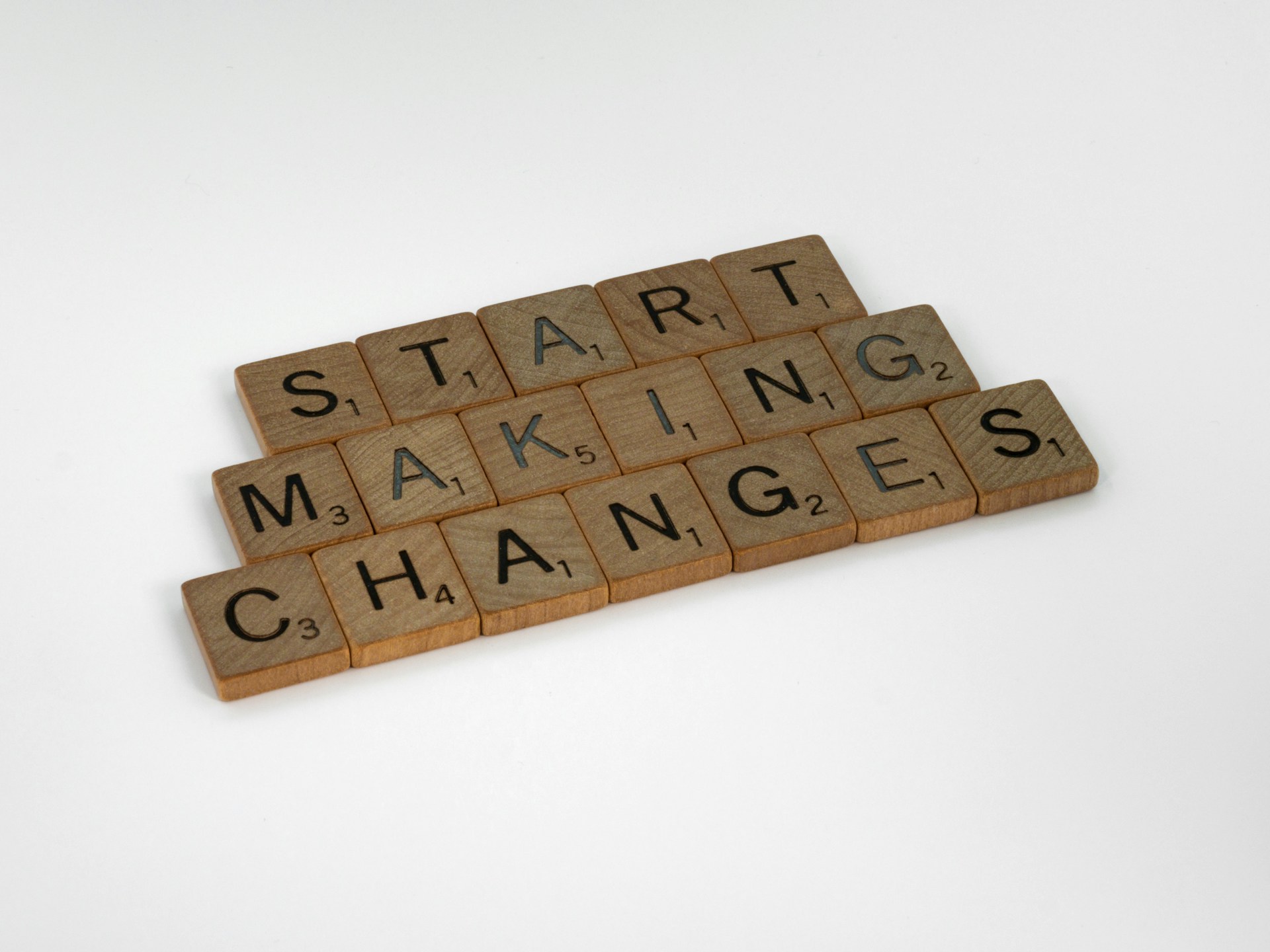Struggling to find satisfaction or happiness at work? Sometimes, it can be hard to differentiate between being unhappy with your current position or just having a difficult period at work. But to help you get a better picture of what's going on, here are 10 signs you hate your current job, and if you do, here are 10 things you can do about it.
1. Lack of Motivation
What's the first thing you feel when you wake up on a Monday morning? If it's dread and disappointment, that's not a good sign. If you're reluctant to get out of bed every day and struggle to find the energy to finish your work assignments, it's an evident sign that you're unhappy with your current job.
2. Decreased Productivity
Noticing that you can't focus and output as much as you did before at work? If you're finding there have been significant drops in your productivity, it could mean that you're unhappy with the way things are. Don't ignore that feeling of "not caring" about what you're doing and how you're doing it.
 Photo by BRUNO CERVERA on Unsplash
Photo by BRUNO CERVERA on Unsplash
3. Frequent Complaints
Do you constantly bring up work gripes to your friends? Are you always complaining to your partner about something your coworker did? If you find yourself always talking about your workplace in a negative light, it just means your job is causing a lot more stress and frustration than you're letting on.
 Photo by Christina @ wocintechchat.com on Unsplash
Photo by Christina @ wocintechchat.com on Unsplash
4. Emotional Exhaustion
After a long day at work, the feeling of being emotionally drained can be incredibly overwhelming. You should never feel like a day in the office knocked the life out of you! The longer you keep these pent up feelings inside, the more it'll turn into anxiety, irritability, and exhaustion and start seeping into your day to day life.
 Photo by Studio Republic on Unsplash
Photo by Studio Republic on Unsplash
5. Physical Symptoms
You know it's bad if your emotions are starting to cause physical symptoms. If you're feeling so stressed at work that it's starting to give you headaches, keep you up at night, or even make you nauseous, it's time to do something about it. Always put your health first!
 Photo by Usman Yousaf on Unsplash
Photo by Usman Yousaf on Unsplash
6. Lack of Professional Growth
Everyone is always looking for new ways to grow and develop, whether it be personally or professionally. When it comes to your work, having no opportunities to advance or learn can leave you feeling really stuck and unsure of what to do next. And the longer you stay there, the unhappier your feelings start to be.
 Photo by Razvan Chisu on Unsplash
Photo by Razvan Chisu on Unsplash
7. Disconnection from Company Culture
Never underestimate the importance of company culture. If you feel like you don't mesh well with what your company values, that feeling of disconnect can leave you feeling unmotivated and left out. People need something to strive toward and connect with if they want to succeed!
 Photo by LYCS Architecture on Unsplash
Photo by LYCS Architecture on Unsplash
8. Avoidance of Work-Related Social Events
Social events at work are meant to be a time for coworkers to relax, unwind, and enjoy each other's company. If even these positive events are making you feel uninterested, it's a sign you're letting your feelings about the job interfere with your ability to socialize.
 Photo by Annie Spratt on Unsplash
Photo by Annie Spratt on Unsplash
9. Persistent Daydreaming About Leaving
Are you constantly thinking about quitting your job, working someplace else, or doing literally anything other than what you're currently doing? It may be a day dream, but it doesn't mean you should ignore that feeling. If your heart is lying somewhere else, it means it's time to listen to what it's saying and take some action.
 Photo by Drew Masmar on Unsplash
Photo by Drew Masmar on Unsplash
10. Poor Work-Life Balance
Feeling constantly burnt out at work means you're not getting very good work-life balance. While you should always be working hard on the job, it's important that you give yourself time to relax and be with friends and loved ones. Not finding the right balance will only leave you stressed and feeling frustrated toward your job.
 Photo by christopher lemercier on Unsplash
Photo by christopher lemercier on Unsplash
1. Assess Your Goals
First things first, if you want to change your attitude about your job, it's time to make some goals. What is it that you want out of this career? And what do you want to achieve? Planning out some of your long-term goals can help you realize whether or not your current job can help you get there.
 Photo by Isaac Smith on Unsplash
Photo by Isaac Smith on Unsplash
2. Seek Professional Development
Don't just sit there waiting for change to happen - be the change you want to see! Look for different opportunities available to you where you can improve and learn new skills. This can be through training programs, workshops, or even online courses. Finding these ways to get professional development can not only be fulfilling, but can help open the new doors that you're looking for.
 Photo by Kenny Eliason on Unsplash
Photo by Kenny Eliason on Unsplash
3. Improve Your Work Environment
Did you know that changing your workspace might just be the thing you need to feel more productive and engaged at work? Making yourself feel more comfortable can make all the change. Bring in little desk accessories that make you happy, clear up the space, or maybe even bring in a little plant to boost your mood.
 Photo by Olena Bohovyk on Unsplash
Photo by Olena Bohovyk on Unsplash
4. Communicate with Your Manager
Even though it might be difficult to initiate the conversation, having an open and honest talk with your manager about your recent concerns can be really helpful. They might be able to help you find new approaches or solutions that will allow you to overcome to challenges you're facing.
 Photo by krakenimages on Unsplash
Photo by krakenimages on Unsplash
5. Explore New Responsibilities
Of course it's important that you make sure you're not taking on more than you can handle, but trying out new projects or tasks can be a way to make your job feel more exciting and refreshing. Sometimes all we need is a change of pace, and trying something new might be what you needed all along.
![]() Photo by Icons8 Team on Unsplash
Photo by Icons8 Team on Unsplash
6. Build Stronger Relationships
Your work environment might become more enjoyable if you invest some time into building stronger, more friendly relationships with your fellow coworkers. Having that fun social aspect at work can do wonders on your mental health and feelings of job satisfaction!
 Photo by LinkedIn Sales Solutions on Unsplash
Photo by LinkedIn Sales Solutions on Unsplash
7. Set Boundaries
Learning when to say no can be a big improvement on your work and personal life. It's important that you don't let the two cross-over to either side. Establishing these boundaries can help you focus on what's important and will help improve your overall wellbeing. It's good to know when to relax and when to work hard.
8. Focus on Positive Aspects
Take a moment to clear your mind of all the negatives and try to think about all the positives. Sometimes dwelling on the bad things can cloud your vision and make things feel worse than they actually are. What are some aspects of your job that you do enjoy? Pointing out these positives can be the first step in fixing your job satisfaction and happiness.
 Photo by Nathan Dumlao on Unsplash
Photo by Nathan Dumlao on Unsplash
9. Plan for Career Advancement
Feeling lost? Navigating your career trajectory can be difficult and unpredictable, but it never hurts to sit down and start planning. Whether you're planning your career journey within your current company or somewhere else, finding your purpose again can help give you a good sense of direction. It might be just the thing you need to start making some changes.
 Photo by Brooke Cagle on Unsplash
Photo by Brooke Cagle on Unsplash
10. Consider a Career Change
If none of the other steps seem to be helping you change your attitude or improve your feelings about your current job, at the end of the day, maybe it's just time to try changing careers. Sometimes, things don't turn out how we want them to, but that's okay! It's the steps you take after that matter. During this pivotal change, make sure you reflect on your true interests and passions to help you better find a company or position that matches what you desire.










